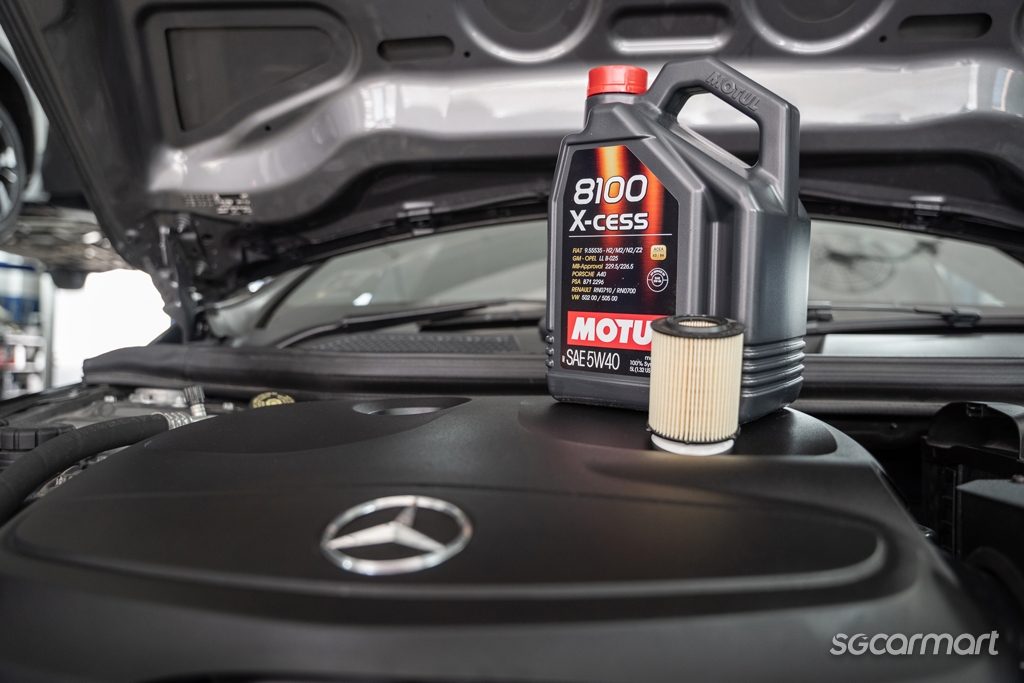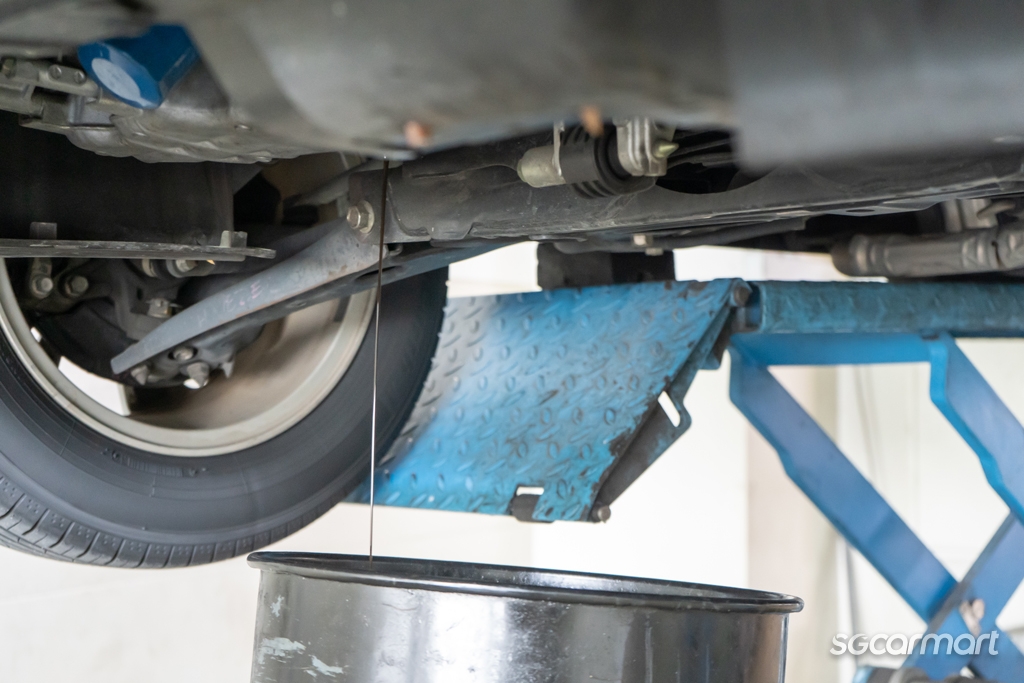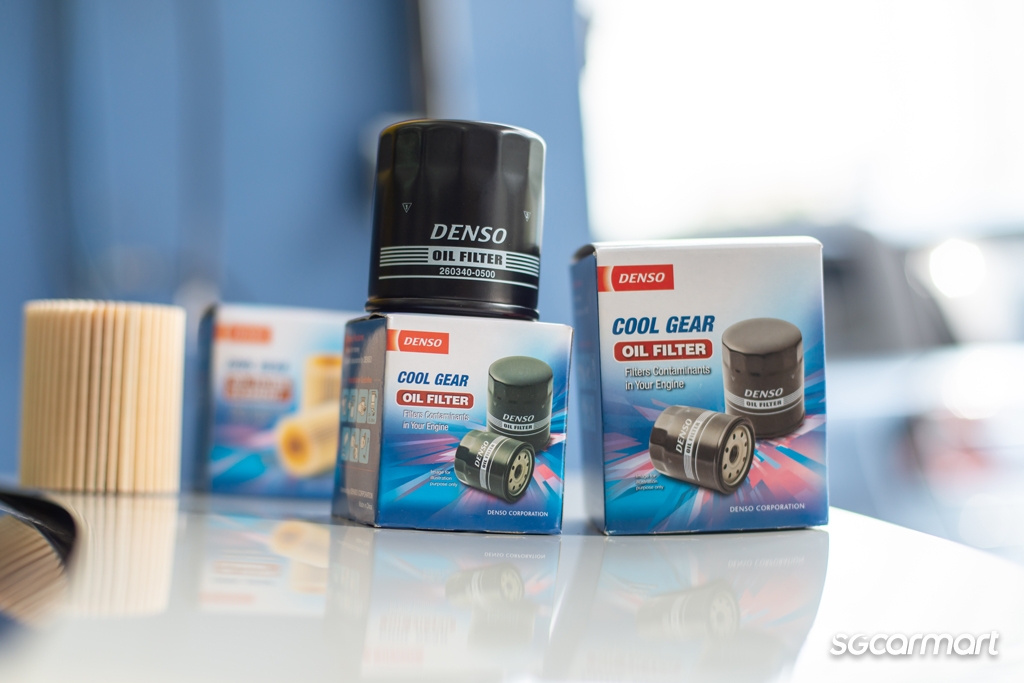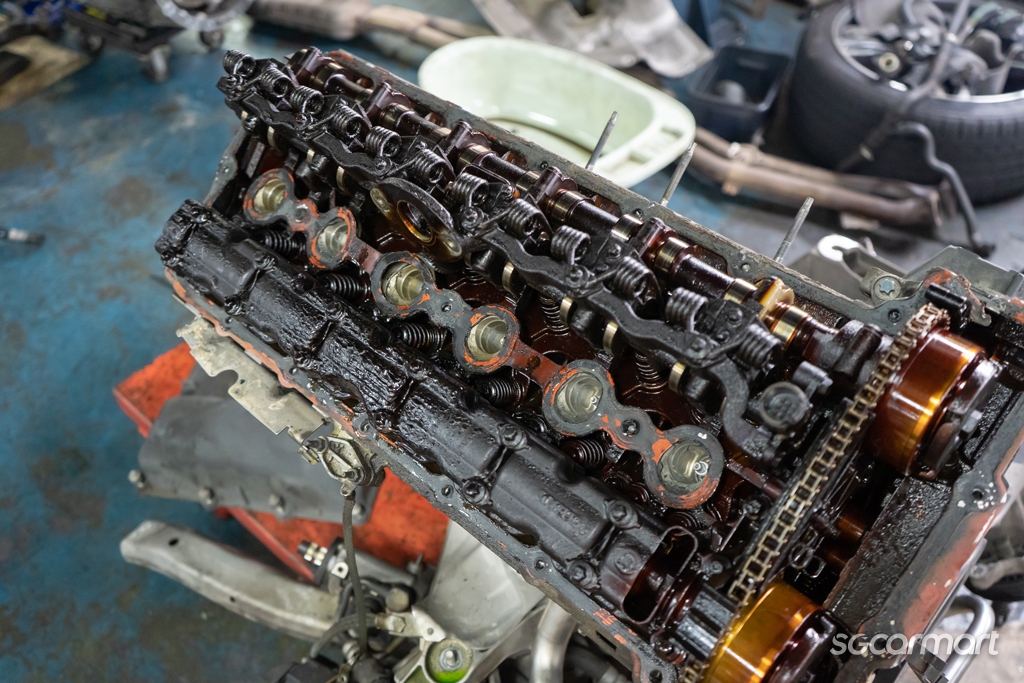Engine oil changes: Separating fact from fiction
27 Jun 2023|4,305 views
As a car owner, you've probably heard about engine oil being the 'lifeblood' of the car, and why it's important to change it regularly.
Oil does more than just lubricate the engine's moving parts. One of its most important and understated roles is its detergency. Apart from providing lubrication, it's also formulated to help remove deposits, and keep your engine at its optimal temperature.
Now, although there are plenty of facts about engine oil, there are also numerous misconceptions that persist. We bust several key ones.
1. Synthetic oil is always the best
For modern cars, yes, synthetic oil is better than say, mineral oil or semi-synthetic oil. Synthetic oil typically has better lubricating and detergent properties, which benefits the engine. It can also better withstand the stresses of hot weather and stop-start traffic.
However, when it comes to classic cars, synthetic oil is best avoided, as the chemicals that give it its detergency may end up harming an older engine's oil seals, eventually leading to an oil leak.
Synthetic oil for new cars is great, but a classic car will probably need a mineral oil formulated to work with the metal alloys used in its engine construction.
2. No need to follow oil change intervals
It's possible, but it really depends. For instance, if your next oil change is in six months or 10,000km (whichever comes first), changing the oil at 10,500km or in seven months is unlikely to cause a catastrophic failure, as engines are made to tolerate variances in maintenance.
However, no matter how well formulated a synthetic oil is, it will eventually start to degrade due to heat, wear and accumulated deposits. Hence, every manufacturer will recommend oil change intervals based on time, mileage and driving conditions.
Shorter servicing intervals are needed for severe driving conditions. These include factors such as stop-start traffic, constantly driving distances below 10km per trip, and dusty environments.
3. No need to change the oil filter
It might seem tempting to just replace the oil but hold off on changing the oil filter to save money, but you only risk damaging your engine in the long run. Oil filters trap harmful deposits to help your motor remain clean.
Having fresh oil is great, but once the filter is full of deposits, it can't trap any more. Instead, these nasties will continue circulating or clogging up your engine - the very situation you want to avoid.
Replace the filter and the oil at the same time, or you'll end up damaging your car and your bank account. Remember, preventive maintenance is always better than downtime due to repairs.
4. Lower speeds and short distances are not 'severe'
How can slow-moving traffic and driving short distances not be good for your car? After all, doesn't the lower speed and shorter usage period mean less stress on your vehicle?
Engines achieve optimal performance at moderate to high speeds, not low-speed crawls. Slow speeds mean lower oil temperatures, and potentially lower lubricant viscosity, potentially leading to the build-up of sludge.
Meanwhile, short distances do not allow oil and the engine to reach their optimal operating temperatures. At the right temperatures, the oil's protective and detergency properties will be at their highest, while the engine will be hot enough to burn off carbon that would otherwise remain as deposits.
5. No need to change the oil if my mileage is low
This is another common myth. If the recommended intervals are six months or 10,000km, but the car has only clocked 3,000km during that period, an oil change seems like a waste of money.
But despite the low mileage, the oil in the engine still ages and slowly loses its efficacy. So, its lubricating and detergency properties are lessened, resulting in less protection for the moving parts.
Speaking of which, it also helps to think of oil as a moving part that also wears out, which is why it must be periodically replaced.
Looking for more car maintenance content? These articles may interest you
Three vehicle components you should replace on a regular schedule
CWORKS - Affordable replacement parts with OE specification and reliability
As a car owner, you've probably heard about engine oil being the 'lifeblood' of the car, and why it's important to change it regularly.
Oil does more than just lubricate the engine's moving parts. One of its most important and understated roles is its detergency. Apart from providing lubrication, it's also formulated to help remove deposits, and keep your engine at its optimal temperature.
Now, although there are plenty of facts about engine oil, there are also numerous misconceptions that persist. We bust several key ones.
1. Synthetic oil is always the best
For modern cars, yes, synthetic oil is better than say, mineral oil or semi-synthetic oil. Synthetic oil typically has better lubricating and detergent properties, which benefits the engine. It can also better withstand the stresses of hot weather and stop-start traffic.
However, when it comes to classic cars, synthetic oil is best avoided, as the chemicals that give it its detergency may end up harming an older engine's oil seals, eventually leading to an oil leak.
Synthetic oil for new cars is great, but a classic car will probably need a mineral oil formulated to work with the metal alloys used in its engine construction.
2. No need to follow oil change intervals
It's possible, but it really depends. For instance, if your next oil change is in six months or 10,000km (whichever comes first), changing the oil at 10,500km or in seven months is unlikely to cause a catastrophic failure, as engines are made to tolerate variances in maintenance.
However, no matter how well formulated a synthetic oil is, it will eventually start to degrade due to heat, wear and accumulated deposits. Hence, every manufacturer will recommend oil change intervals based on time, mileage and driving conditions.
Shorter servicing intervals are needed for severe driving conditions. These include factors such as stop-start traffic, constantly driving distances below 10km per trip, and dusty environments.
3. No need to change the oil filter
It might seem tempting to just replace the oil but hold off on changing the oil filter to save money, but you only risk damaging your engine in the long run. Oil filters trap harmful deposits to help your motor remain clean.
Having fresh oil is great, but once the filter is full of deposits, it can't trap any more. Instead, these nasties will continue circulating or clogging up your engine - the very situation you want to avoid.
Replace the filter and the oil at the same time, or you'll end up damaging your car and your bank account. Remember, preventive maintenance is always better than downtime due to repairs.
4. Lower speeds and short distances are not 'severe'
How can slow-moving traffic and driving short distances not be good for your car? After all, doesn't the lower speed and shorter usage period mean less stress on your vehicle?
Engines achieve optimal performance at moderate to high speeds, not low-speed crawls. Slow speeds mean lower oil temperatures, and potentially lower lubricant viscosity, potentially leading to the build-up of sludge.
Meanwhile, short distances do not allow oil and the engine to reach their optimal operating temperatures. At the right temperatures, the oil's protective and detergency properties will be at their highest, while the engine will be hot enough to burn off carbon that would otherwise remain as deposits.
5. No need to change the oil if my mileage is low
This is another common myth. If the recommended intervals are six months or 10,000km, but the car has only clocked 3,000km during that period, an oil change seems like a waste of money.
But despite the low mileage, the oil in the engine still ages and slowly loses its efficacy. So, its lubricating and detergency properties are lessened, resulting in less protection for the moving parts.
Speaking of which, it also helps to think of oil as a moving part that also wears out, which is why it must be periodically replaced.
Looking for more car maintenance content? These articles may interest you
Three vehicle components you should replace on a regular schedule
CWORKS - Affordable replacement parts with OE specification and reliability





















